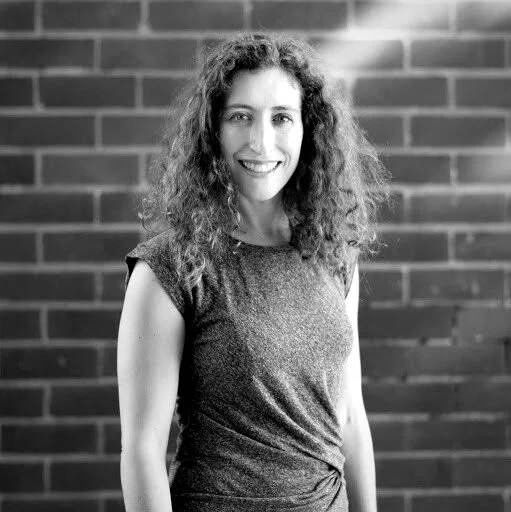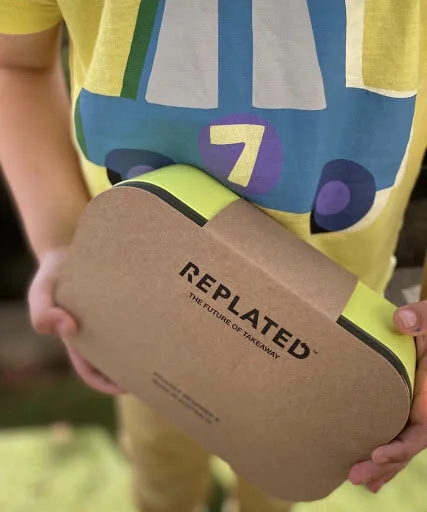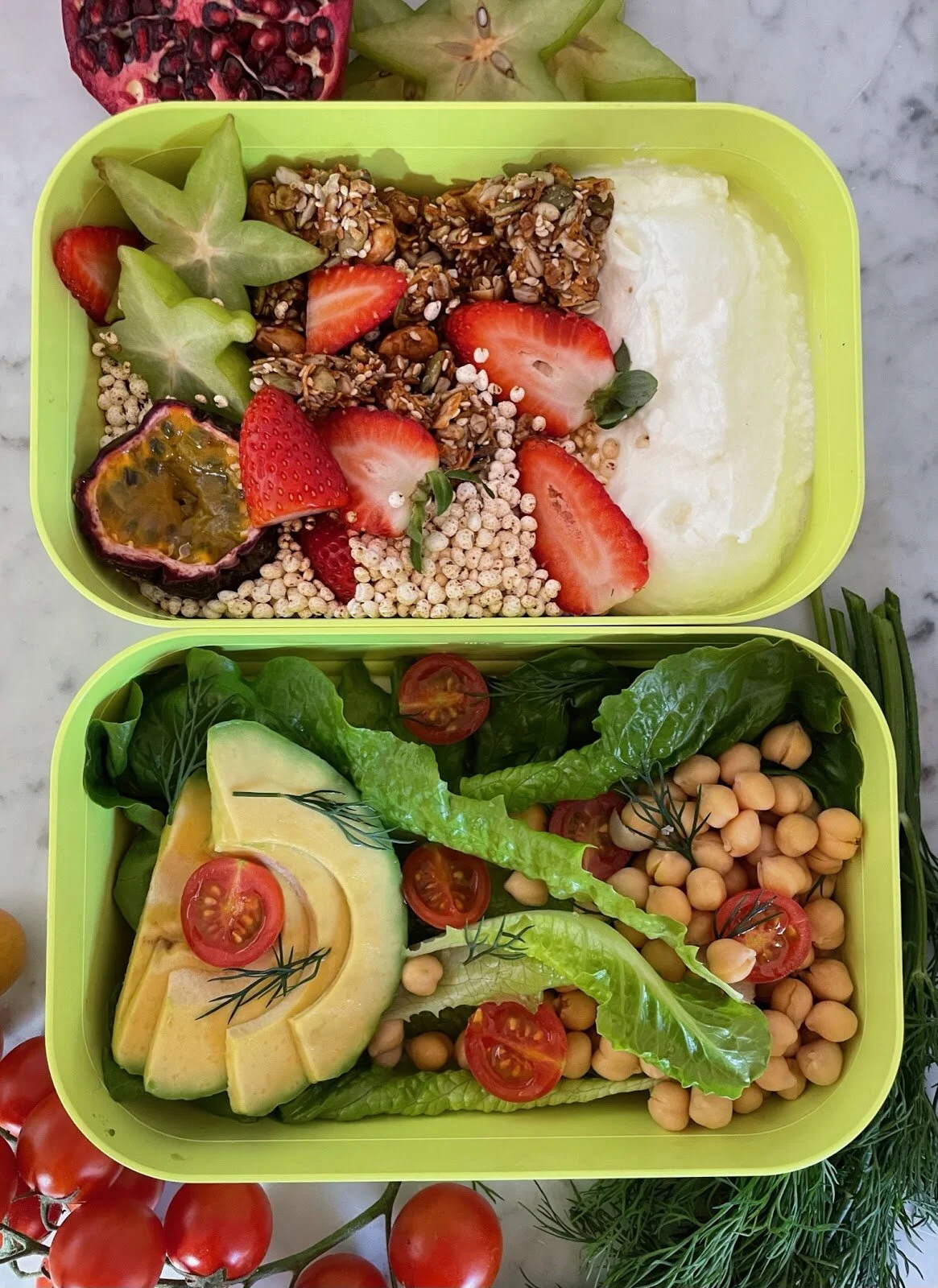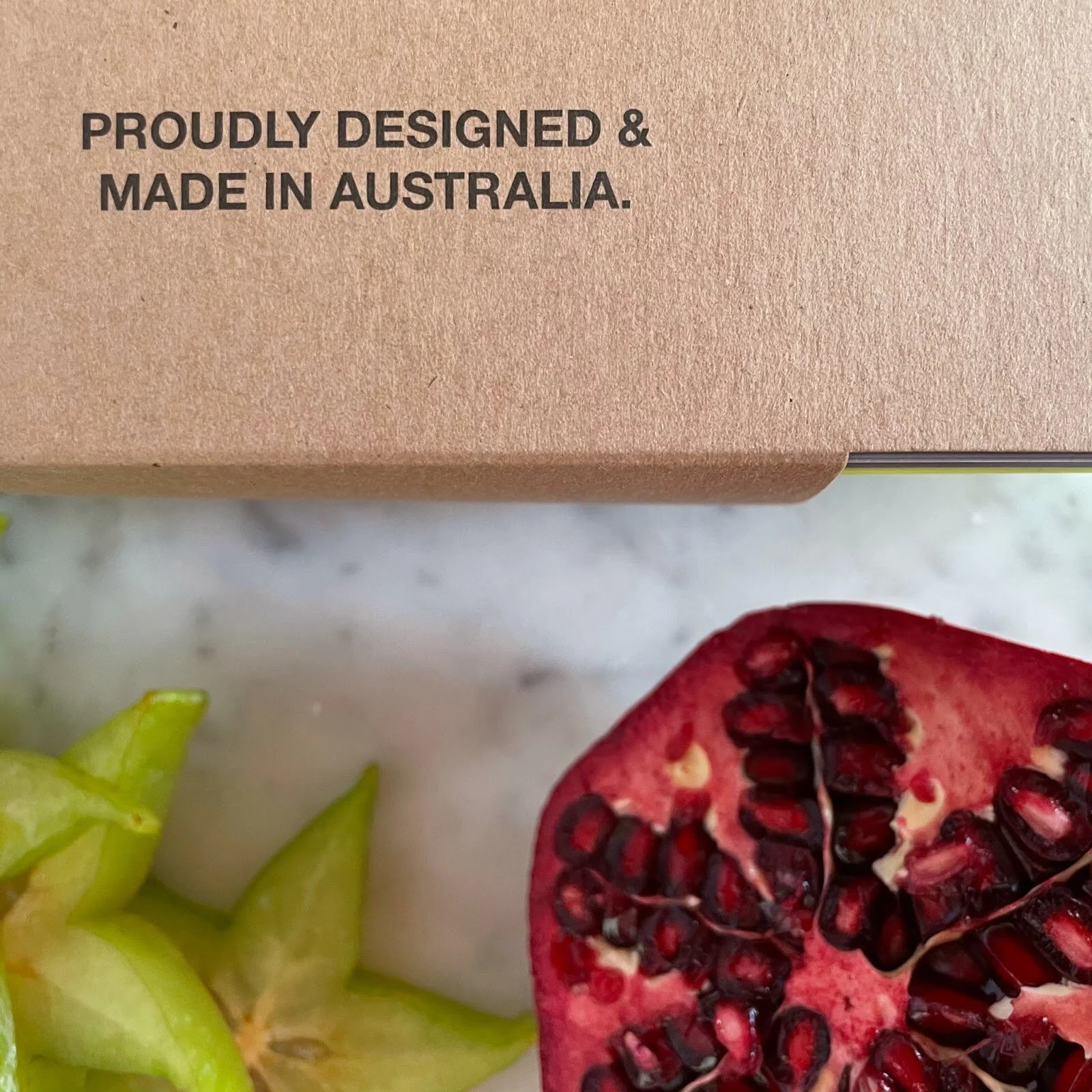Naomi Tarszisz On How The Circular Economy Is Effectively Reducing Waste
Naomi Tarszisz is a passionate & experienced business leader who has evolved her career significantly in the last four years to put purpose at the fore.
After nearly 20 years co-creating digital products and services for some of the worlds leading brands, she is the sole founder of a purpose-led business, RePlated. The idea for RePlated was born on a Sydney beach. In the 80s, Naomi’s parents took her to collect plastic rubbish Sydney’s beaches. That was the start of her passion for protecting the environment.
Flash forward three decades and Naomi found herself back at the same beach, collecting rubbish with her own children. RePlated wants to make single-use history with beautiful, reusable Australian made takeaway food containers and systems. Some of the areas Naomi has picked up expertise in since founding RePlated include manufacturing in Australia, sustainability and circular economy.
Naomi discusses possible opportunities for investment in the circular economy and the importance of finding diverse mentors and teams.
Highlights from the interview (listen to the podcast for full details)
[Indio Myles] - Naomi, could you please share a bit about your background and what led to your work in the circular economy?
[Naomi Tarszisz] - I originally worked in digital media building products and services. I was at a point [in my career] where I was in a leadership role, had a young family and I had this realisation [although it wasn't an immediate realisation] that I wanted to build something of lasting value. This idea was simmering under the surface for a really long time, really from when I was a kid. I'd gotten my first keep cup at the East London Design Fair in 2009, and when I moved back to Australia in 2010, I was really shocked when my boss took me out to work and ordered us double-walled lattes while we were sitting in a café. I was completely appalled, and I never let her do that again.
This idea of wastage and understanding that we consume so many single use products by accident and sometimes by design came to the forefront of my thinking.
It was something that was really increasingly important to me personally, and when this happens you start to pick rubbish up, and as my kids got older, we were on the beaches picking rubbish up. I really did have a realisation that this was the problem I wanted to fix, and that I felt that I had the passion to sustain me over a long period of time. Building a business is a really hard thing to do, especially if you've never done it before. The concept of the circular economy came into that when it was just an idea and I was really fortunate enough to enter ideas competitions, and I did quite well with those. I met some incredible people and there was one woman in particular, Jodie Bricout, who invited me to a circular economy conference in Adelaide which she ran called Loop.
That changed everything for me as I learned from the ground up what circular economics meant, and that was something I knew I wanted to do.
It was very conscious choice I made to become part of the circular economy.
You're the founder of RePlated, an enterprise designing sustainable reusable food containers and a system to reduce waste. What impact has RePlated created and what plans do you have for the future?
We're just at the beginning, but in terms of impact it's more of an estimate because we don't perform wastes audit before and after our sales. The last calculation we made found that we saved about 60,000 containers, 1,500 kilograms of waste and 13 tons of CO2. These are real impacts, and this is at a really early stage. We have a small number of corporate customers and a lot of individuals that we're starting to reach particularly through our pilot program in Waverly. What I find incredible is just every person that comes on board makes this difference and it is impactful.
We communicate that to our customers, so they understand the impact that they're making, and I think that knowing that small change does have an impact is really important.
When I talk about our future plans, we really want to make reuse accessible and as easy to use as single use products. That involves all the players in the system including food vendors, individuals and the local government being part of the solutions that we create. I also say we don't have just one system; we are developing flexible systems because I think one of the places that can fall down is when there is only one way to do things that might not work for everybody. I think broadly the swap program we're doing in Waverley that we want to roll out will probably be a little bit less flexible, but even then, I got an email from someone saying, "I really want to use your swap system, but I don't really want to swap." I said to her, "that's fine! Of course, you can still use it." You can bring your own containers to use in a swap system so there is that flexibility and allowance for people's needs.
It will be exciting to see what other ideas you create and implement in the future. What progress do you believe Australia has made in creating frameworks and policies for socially led organisations to succeed?
I can't speak too broadly outside of the circular economy, because that's the space that I'm concerned by, but I've been a little bit disappointed in the slowness of infrastructure investment to support the circular economy. What I mean by that is since China stopped taking the world's recycling [and that was in 2018], the need to build that infrastructure in Australia has existed. I haven't really seen much movement since then. While we are an organisation and meet advocates of the earlier stages of the recycling triad [reuse, reduce and recycle], without that effective recycling onshore, it's really hard to make the circular economy work well because the product that I need from my containers are made from recycled material. The product they need is made from recycled plastic and it's really hard to access that. What I also see in competitors is this switch away from traditional plastics because they don't want to use a virgin product, which to be fair I wouldn't want to do either.
However, that switch away from traditional plastics is actually sometimes even more problematic because there's literally no way to recycle a lot of these materials in this country either.
You need to see recycling for other types of material as well as for traditional types of material and investment in that space. I don't think it's possible for private enterprise to support that investment. It really does need government help and that's what I would love to see. I guess also as a female founder, I've been impressed by the Boosting Female Founders Initiative. I don't know how well executed it is so far, but I'd love to see that same attention and investment also given to socially and environmentally led organisations because I think that needs to become a priority.
As a business leader and founder, how important has mentoring and establishing a network with other people within the sector and other businesses been for you? Furthermore, how do you develop those relationships effectively?
I've been really fortunate to meet some incredible people on my entrepreneurial journey and circular economy journey. Some of those mentorships are relationships where someone will come into your life at a particular time and give you incredible tools. You might not see them regularly, but they are gifting their time and expertise. It is just so great and that carries with you for a really long time. I think I talked about Jodie before, and she's definitely one of those people for me. I think particularly as a female founder, going out and consciously creating networks and finding people who are not just like-minded is crucial. You obviously want to find people who support what you're doing and understand what you're doing in terms of your mission.
However, I've also really learned to consciously seek out people who approach problem solving and life quite differently to me, because I think having a diversity of opinion and making sure you're not just in an echo chamber is important.
It's not just about establishing those networks, but also about trying to be conscious in who I bring into the business on an advisory board level, but also personally which relationships are important to maintain. I think sometimes that different perspective to what you see for yourself is crucial.
That is a really great piece of advice. What inspiring projects or initiatives have you come across recently that are creating a positive social change?
Recently, we entered into the Circle Awards, and we won! The whole experience of participating in that program was great. They did a group call with all the finalists and winners, and all of the businesses that I saw on that call were inspiring. It was one of the most inspiring hours I've had in a long time, but the companies on that call I could list forever! Great Wrap are incredible, Ricoh are amazing and there's also Woolpack which was created by Planet Protective Packaging. I don't know if you've come across Woolpack, but they have won loads of awards actually. What was really incredible is quite recently after that event, I've made friends with another woman and her name is Lenka. She runs a raw treat business called More, which is wonderful. She and I were talking about challenges, and I've never seen anyone light up when they talked about a product as much as she talked about Woolpack.
I think that it's one thing to be inspired by a product in theory, but when you hear about somebody's business being improved by a product that is so circular, it make me hope we create the same inspiration.
I want our product to have that same impact on people, and that's really inspiring to see
What books or resources would you recommend to our listeners?
I'm a lover of podcasts, and I am a mum as well, so we listen to Squiz Kids every day! I also love a life hack because I like bite-size content. I think it's a gift to be able to do something in eight minutes, and I don't know how they do that. I listen to the Full Story from The Guardian a couple of times a week if not more. I have an enormous list of podcasts that I listen too, but the ones that I've got on really high rotation at the moment are all American, but I absolutely love 99% Invisible. I love Brené Brown's podcasts, it just makes me feel like a better person and somehow a better parent just by listening, which during lockdown is the most important thing!
Another resource I don't read every day, but every week Scott Galloway writes a really wicked email around strategy, and his brain and the way he thinks is extraordinary. I found him through The Pivot Podcast, which he presents with Kara Swisher, and that's really about the global or American start-up economy. My background was in technology, and I like to just know what's going on. It is also just really funny, and I think often in this sector you get into very serious spaces with listening to work type podcasts, so I like having a laugh as well.








